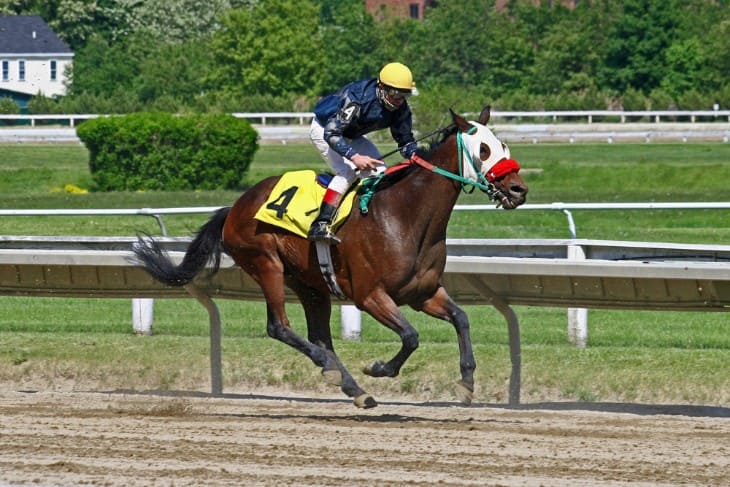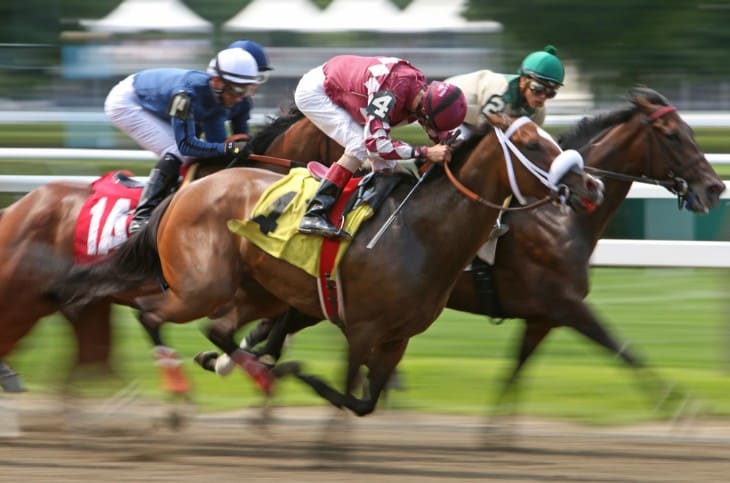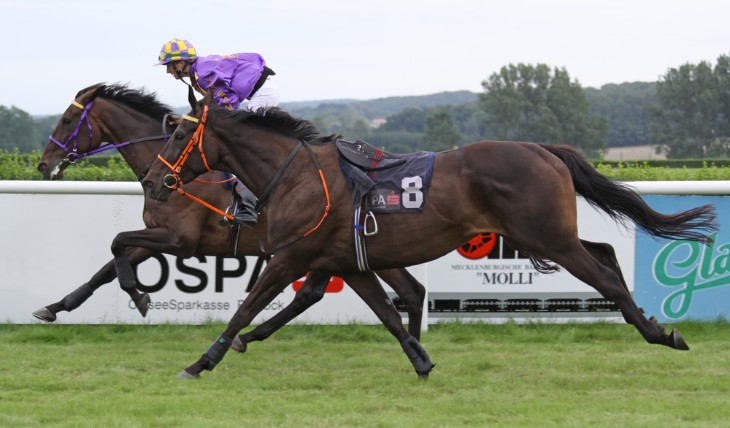- The Role of a Hot Walker in Horse Racing Stables
- A Day in the Life of a Hot Walker
- Essential Skills and Qualities for Hot Walkers
- Hot Walker: A Stepping Stone in the Horse Racing Industry
- Health and Safety Considerations for Hot Walkers
- Tools and Equipment Used by Hot Walkers
- Understanding Horse Behaviour: A Key Aspect for Hot Walkers
- Training and Career Development for Hot Walkers
- Comparative Analysis: Hot Walkers in Different Racing Cultures
- Conclusion
The Role of a Hot Walker in Horse Racing Stables
The role of a hot walker within the context of horse racing stables is both critical and specialised. Primarily, a hot walker is tasked with the responsibility of cooling down racehorses after their training or races. This process involves leading the horses on a walk, ensuring they cool down gradually and do not become chilled or overheated. The importance of this role cannot be overstated, as the proper cooling down of horses is crucial to their health, recovery, and overall well-being.
In addition to physical care, hot walkers play a vital role in observing and reporting any signs of injury, stress, or discomfort in the horses under their care. They work closely with trainers and veterinarians, providing essential information that can impact the horse's training regimen and medical care. This aspect of the job requires keen observation skills and a deep understanding of equine behaviour and physiology.
A Day in the Life of a Hot Walker
A typical day for a hot walker starts early in the morning, aligning with the training schedules of racehorses. Their primary tasks include:
- Morning Rounds: Beginning with morning checks, hot walkers assess each horse's condition, looking for any signs of distress or discomfort.
- Post-Training Care: After morning training sessions, hot walkers take each horse for a cool-down walk. This is crucial for preventing muscle stiffness and maintaining the horse's overall health.
- Feeding and Hygiene: Part of the day is devoted to assisting with feeding the horses and maintaining cleanliness in the stables.
- Afternoon Sessions: Similar to the morning, the afternoon often involves another round of training followed by cooling down the horses.
- Observation and Reporting: Throughout the day, hot walkers observe the horses for any signs of abnormal behaviour or health issues, reporting these to the trainers or veterinarians.
- End-of-Day Care: As the day winds down, hot walkers ensure that the horses are settled for the night, with final checks and preparations for the next day.
The role of a hot walker extends beyond mere physical activity; it encompasses a comprehensive approach to the care and maintenance of racehorses. Their insights and observations are invaluable in maintaining the health and racing fitness of these equine athletes.
Essential Skills and Qualities for Hot Walkers
The profession of a hot walker requires a unique set of skills and qualities, essential for the effective management and care of racehorses. Firstly, an in-depth knowledge of horse behaviour is paramount. This understanding enables hot walkers to quickly identify any signs of distress or illness in the horses, ensuring timely intervention. Additionally, physical fitness and stamina are crucial, as the job involves significant amounts of walking and handling of powerful animals.
Equally important are patience and a calm demeanour. Horses, being sensitive and perceptive animals, respond to the emotional state of their handlers. A hot walker must maintain a composed and reassuring presence, which helps in keeping the horses calm and cooperative. Strong communication skills are also vital, not just for interaction with the horses, but also for effective collaboration with trainers, veterinarians, and other stable staff. The ability to work as part of a team, while also being capable of independent decision-making, is a valuable asset in this field.
In earlier times, the focus was primarily on the physical aspect of walking the horses. However, with time, the role has expanded to encompass a more holistic approach to equine wellbeing. Modern hot walkers are not only responsible for the physical cooling down of the horses but are also trained to observe and identify potential health issues, understand the nuances of horse behaviour, and work in tandem with equine health professionals. This evolution reflects a broader shift in the horse racing industry towards more sophisticated and humane approaches to horse care and training. The modern hot walker is now recognised as a key contributor to the health and success of racehorses.

Hot Walker: A Stepping Stone in the Horse Racing Industry
A career as a hot walker often serves as an entry point into the horse racing industry. For many, it is a stepping stone towards more advanced roles within this field. The progression typically involves:
- Gaining Experience: Starting as a hot walker provides a practical and hands-on experience in horse care and stable management.
- Building Relationships: It offers opportunities to build relationships with trainers, owners, and other influential figures in the racing industry.
- Learning the Ropes: The role allows for a deeper understanding of the racing world, including insights into training techniques and horse management.
- Career Advancement: Many hot walkers use the experience to advance to roles such as assistant trainers, jockeys, or even racehorse trainers, leveraging the skills and knowledge acquired in their initial position.
The journey from a hot walker to other roles in the industry is not just about acquiring skills but also about understanding the nuances and complexities of horse racing as a sport and business. This progression underscores the importance of the hot walker's role as a foundational career step in the industry.
Health and Safety Considerations for Hot Walkers
Health and safety are paramount concerns in the role of a hot walker. The physical nature of the job, combined with the inherent risks of working with large animals, necessitates a strong focus on safety protocols. Key considerations include:
- Personal Safety Equipment: Hot walkers must use appropriate personal protective equipment, such as sturdy footwear, gloves, and sometimes helmets, to mitigate the risk of injury.
- Training in Horse Handling: Proper training in horse handling and behaviour is crucial to prevent accidents. This includes understanding how to approach and lead horses, as well as how to read their body language and respond to their actions.
- Awareness of Surroundings: Being constantly aware of the surroundings and the horse’s reactions is essential to prevent unforeseen incidents, especially in environments where multiple horses are being walked simultaneously.
- Physical Well-being: The job’s physical demands require hot walkers to maintain good physical health, including strength and stamina, to manage the rigours of the role effectively.
Implementing and adhering to these safety measures is essential for reducing the risk of accidents and ensuring the well-being of both the hot walkers and the horses under their care. This focus on health and safety is a crucial aspect of the professional standards within the horse racing industry.
Tools and Equipment Used by Hot Walkers
The effectiveness of a hot walker's role is significantly enhanced by the use of specific tools and equipment. These items are not only essential for the care of the horses but also for the safety and efficiency of the hot walker. Key tools and equipment include:
- Lead Ropes and Halter: Essential for controlling and guiding the horse during the cooling down process.
- Protective Gear: Including boots and gloves to ensure the hot walker's safety while handling the horses.
- Communication Devices: Such as walkie-talkies or mobile phones, to stay in contact with other stable staff.
- Weather-appropriate Clothing: To protect against various weather conditions, ensuring comfort and efficiency in performing their duties.
- First Aid Kit: For both the horses and the hot walker, to address minor injuries or issues immediately.
These tools and equipment are fundamental in aiding the hot walker to perform their duties effectively and safely. Proper use and maintenance of these items are integral parts of the hot walker's daily routine.
Understanding Horse Behaviour: A Key Aspect for Hot Walkers
A profound understanding of horse behaviour is a cornerstone of the hot walker's role. Recognising and interpreting the subtle cues and signals that horses exhibit is crucial for effective care and handling. This knowledge not only aids in the immediate tasks of cooling down and exercising the horses but also plays a vital role in identifying potential health or behavioural issues.
Horses communicate through body language, vocal sounds, and even through their general demeanour. For a hot walker, being attuned to these forms of communication is essential. It involves understanding signs of stress, discomfort, or illness, which can be subtle and easily overlooked. Additionally, a deep understanding of horse behaviour helps in creating a bond of trust and cooperation between the hot walker and the horse, making the handling process smoother and safer.
This aspect of the role requires continuous learning and experience, as each horse can exhibit unique behavioural traits. The ability to adapt to different horses and situations is what makes an experienced and effective hot walker. Such expertise not only enhances the quality of care provided to the horses but also contributes significantly to the overall success of the racing stable.

Training and Career Development for Hot Walkers
Training and career development are vital components of a hot walker’s professional journey. While the role does not typically require formal educational qualifications, on-the-job training and continuous learning are essential for skill development and career progression. New hot walkers often receive practical training from experienced staff, learning the basics of horse handling, stable management, and safety protocols.
For those seeking to advance their careers in the horse racing industry, various avenues are available. Many hot walkers choose to pursue additional qualifications or certifications in equine care and management. Attending workshops and seminars on horse health, behaviour, and welfare further enhances their knowledge and skills. Additionally, building a strong network within the racing community can open doors to opportunities such as assistant trainer positions or even a transition to other roles in the equine industry.
Continuous learning and development are key to not only improving in the role of a hot walker but also in paving the way for future career advancements within the horse racing sector.
Comparative Analysis: Hot Walkers in Different Racing Cultures
The role of hot walkers varies significantly across different racing cultures, reflecting diverse practices and traditions in horse racing around the world. Key differences include:
- United States and Canada: In North America, hot walkers often form part of larger teams in high-profile stables. The role is usually more specialised, with a focus on post-race and post-training cooling down.
- United Kingdom and Ireland: In these regions, hot walkers often have a broader range of responsibilities, including general stable duties. There is a greater emphasis on apprenticeship and learning on the job.
- Australia and New Zealand: Similar to the UK, hot walkers in Australasia often engage in a variety of stable tasks. The industry here also provides opportunities for career progression within the equine sector.
- Middle East: In regions like Dubai, the role of hot walkers is increasingly recognised as integral to horse care. Stables are often state-of-the-art, and the position may include working with a range of breeds.
These variations reflect the unique aspects of horse racing cultures worldwide, influenced by regional norms, the scale of the racing industry, and the resources available.
Conclusion
In conclusion, the role of the hot walker is an indispensable part of the horse racing industry. Far from being a mere auxiliary position, it is a role that demands a comprehensive understanding of horse care, behaviour, and welfare. The responsibilities of hot walkers go beyond just walking the horses; they are vital observers and caretakers, playing a significant role in the health and performance of these equine athletes.
For more information:








